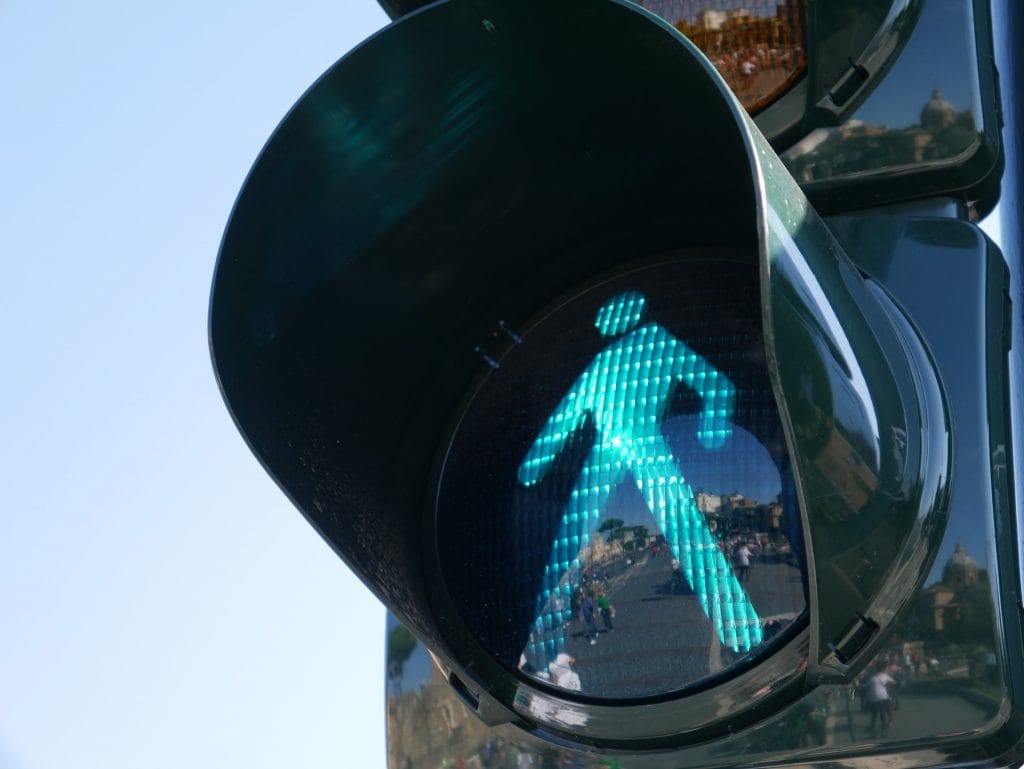
Walking–it is an easy, often pleasant way to decrease stress, burn a few calories and get some much-needed fresh air after a stifling day in the office. Even for those of us with disabilities or aging out of vigorous aerobic exercises, walking can help many stay active without risking injury from overexertion.
However, thinking that walking the streets of any Florida town without risk of injury (or even death) is a dangerous mistake that many make every day. Though Florida may be known for sunny beaches, orange groves and Disney World, we also have the unfortunate distinction of being the most dangerous state for pedestrians.
Even more startling is the fact that Central Florida’s cities Orlando, Kissimmee and Sanford are collectively ranked in as the third worst metropolitan area for pedestrian safety in the country, according to a recent study.
Armed with these facts, it is vital to educate yourself on safe practices that you should incorporate into your next walk, whether it be around the block or for miles on end.
What Pedestrian Safety Tips Do I Need to Follow in Florida?
- Eyes Up: Many pedestrians are guilty of spending more time with their eyeballs glued to their cell phones instead of watching their surroundings. The cell phone should never interfere with common pedestrian safety standards, such as keeping your eyes on your walking path, looking for fellow pedestrians, uneven sidewalks and crosswalks.
- Crosswalk This Way: Crosswalks save lives. It is unthinkable as to why, on many busy streets across Central Florida, you can find pedestrians weaving through cars and sprinting to medians, just to play a game of chicken with oncoming cars. Even more confounding is the fact that clearly marked crosswalks may be just feet from where they decided to risk their lives. Please, take the time to walk to a crosswalk and wait for the signal before crossing a road.
- Bring a Light at Night: Once the sun drops, so does visibility. If walking at night, wear bright, reflective clothing and consider wearing or carrying a flashlight, especially in areas with limited streetlights.
As always, never assume that drivers or cyclists see you. Walk defensively.
The impetus for improved pedestrian safety is not solely on the pedestrian, however. Drivers can also do their part by:
- Never driving under the influence of drugs or alcohol. These will slow your reaction time and judgment behind the wheel.
- Staying off of cell phones and avoiding distractions while driving, as you may miss a stop sign, traffic light or pedestrian running across the road.
- Making a complete stop before turning right on red traffic lights, checking for oncoming pedestrians and bicyclists who may be obscured by light poles or shrubbery.
- Stopping well ahead of crosswalk lines, giving pedestrians enough room to cross. Stopping in the middle of a designated crosswalk forces pedestrians to walk into traffic or weave behind your vehicle–both of which put the pedestrian in danger.
- Following common rules of the road, making complete stops at stop signs, staying within speed limits and keeping eyes on the road.
Never forget that Florida’s roadways are infamous for their danger to pedestrians. If it all possible, always walk on sidewalks and in well-lit areas.
Walking is still a stellar way to stretch your legs and stay healthy all year long–just ensure that you do so with caution and care. By wearing bright colors, utilizing crosswalks, and keeping your eyes and ears open, you may avoid a serious injury and equally serious hospital bill. When not walking, do your part to be a responsible driver for other pedestrians. In the unfortunate case that you are injured while on a walk, do not hesitate to reach out to a personal injury attorney who is ready to help you fight for your claim.
If you, a friend or a loved one are unfortunately injured as a result of negligence by a governmental agency or have any questions, do not hesitate to contact Wieland, Hilado & DeLattre, P.A. at 407-841-7699. For additional resources, keep checking our blog, LIKE us on Facebook and follow us on Twitter for more helpful hints and to always be informed about best practices in law.


